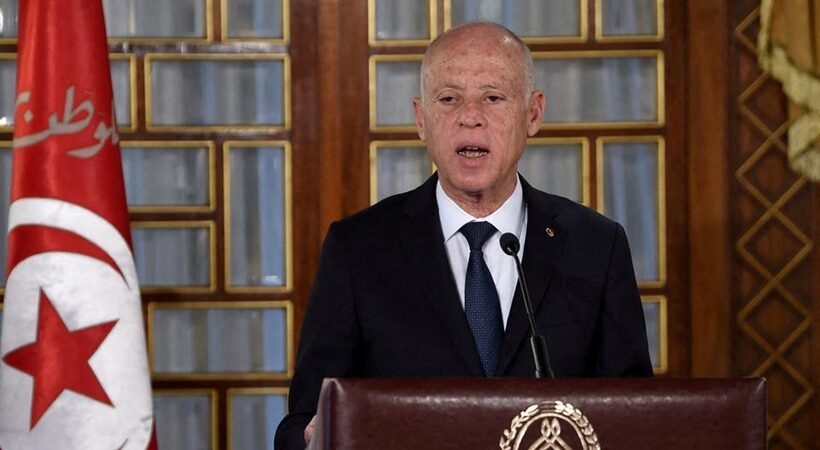Tunisia’s President Kais Saied asserted his authority over the judiciary by introducing a decree that gives him the power to dismiss the judiciary or block their promotion. The incident follows his previous statement indicating he would dissolve the High Judicial Council (CSM). Judges said the move would infringe on judicial independence.
The ruling establishes a new 21-member Temporary Supreme Judicial Council, nine of whom are appointed by the president. It also gives him the power to dismiss any judge who fails to do his professional duties.
In a statement, the High Judicial Council (HJC) fully rejected the presidential decree, calling it an “attack on the independence of the judiciary” and denouncing it as “a violation of the fundamental rights of magistrates”.
The Tunisian Association of Young Judges called the provisional judicial council “simply a lawless” structure that is not based on any legal or constitutional text and reiterated its position on the illegitimacy of the decree condemning a “blatant” violation of the constitution in the chapters concerning the judiciary and rights and freedoms.
“It is forbidden for judges of all ranks to go on strike or hold any organized collective action that could disturb or delay the normal working of the courts”, the decree described.
Saied dismissed the government in July 2021, suspended parliament and seized all powers before moving to rule by decree. This has maligned the only democracy to emerge from the Arab Spring uprisings.
He has stated he has no intention of interfering with the judiciary, but rights groups and world powers have criticized his move.
The International Commission of Jurists stated that the decree “consolidates power in the hands of the President and effectively ends any semblance of judicial independence” in Tunisia.
“It brings Tunisia back to its darkest days when judges were transferred and dismissed based on executive whim,” the commission said.
The CSM said in a statement that it “totally rejects the use of decrees to infringe on the constitutional structure of the judiciary” and that any alternative would have no legal basis.
Saied’s July power grab was welcomed by many Tunisians tired of political parties seen as corrupt and self-serving, but his critics accused him of taking the country back to autocracy.
The decree allows the president to control appointments, promotions, transfers and postings of judges, and further bans the judiciary from going on strike
The transferor posting of judges to different, far locations is an issue, that magistrates may take into consideration in their future handling of cases, which the executive could potentially use as a reason if a judge’s decision is not in line with the president’s.
The newly issued decree has been met with wide opposition from various sectors of Tunisian society.
The judges association also took the matter to the United Nations special rapporteur on the independence of judges and lawyers as well as to the International Association of Judges. It has also initiated a collective action across all the courts aimed at stating firm refusal of the president’s decree and the establishment of the provisional judicial council.
Hours after the order was published, more than 2,000 protesters gathered in central Tunis as part of a rally organized by the moderate Islamist Ennahdha.
Several lawyers and judges last week taking up cudgels shut down court premises through a two-day strike organized by the Association of Tunisian Judges (AMT) after Saied announced his decision to disband the Judicial Council.



















